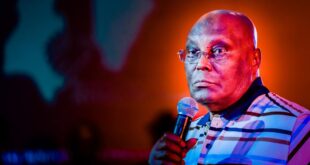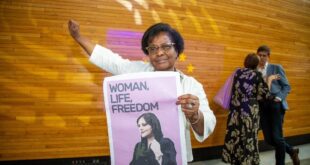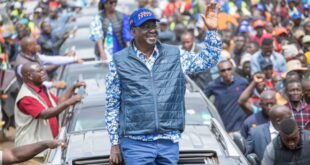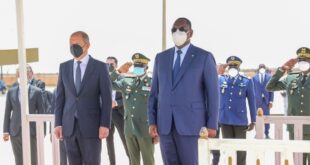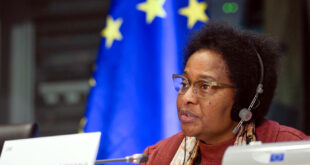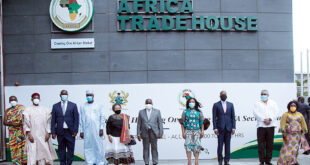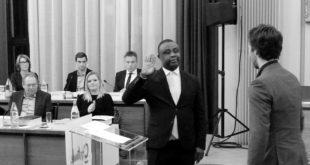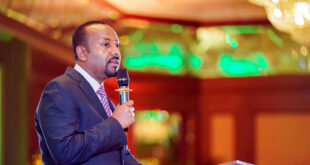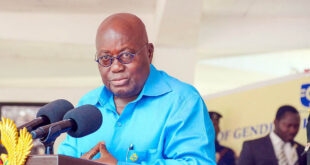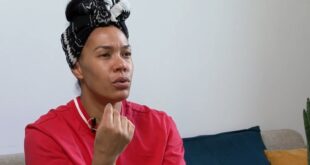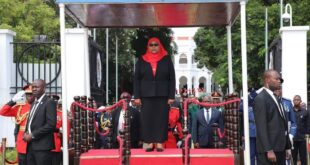Robert Ajani*, scholar, journalist and former Associate Editor of The African Courier , looks at the roots of anti-African racism in the West and the supremacist logic that degrade and devalue Black people
The notion that Black people are normal human beings is a relatively new discovery in the modern West. The idea of Black equality in beauty, culture and intellect remains problematic and controversial even within the West’s halls of learning and sophisticated intellectual circles.
The African encounter with the modern West has been shaped first and foremost by the doctrine of White supremacy, which is embodied in institutional practices and enacted in everyday folkways under varying circumstances and evolving conditions.
The notion ranges from the African being partly a child and partly a devil.
The three most important White supremacist logic that degrade and devalue Black people in the West are as follows:
- The Judeo-Christian racist logic that emanates from the Biblical account of Ham (Genesis 9) looking upon and failing to cover his Father’s (Noah) nakedness, thereby provoking divine punishment in the form of blackening his progeny (“The Black people”). This logic links Africans to disrespect for, and rejection of authority, to ideas of unruly behaviour and chaotic rebellion.
- Second is the “scientific” racist logic which promotes the observing, measuring, ordering and comparing of visible physical characteristics of human bodies in the light of Greco-Roman aesthetic standards that associates Africans with physical, cultural and intellectual inferiority. This mode of reasoning is found since 1492 in the work of European Anthropologists like Chevalier de Lamarck, Henri de Boulainvilliers and Joseph Arthur de Gobineau. We find this tenor also in the work of supposed progressives like Montesquieu, Engels and Karl Marx. According to this racist ideology, Africans are prone to biological instinct than intellect. They are closer to nature and remove from intelligence. Hence, the justification for slavery, colonialism, oppression, development aid etc. The legitimising ideology then becomes ‘the civilising mission’, ‘the white man’s burden’, ‘a cultural obligation’ to tame the African.
- Third is the psycho-sexual racist logic, which endows Black people with sexual prowess; it views them as cruel, revengeful fathers, frivolous, carefree children or passive, long-suffering mothers.
READ ALSO: “Good day for Mother Ghana” as president opens Volkswagen assembly plant in Accra
Taken together all these stereotypes relegate Black people to walking abstractions and lustful creatures. This is the basic ideologically constructed IMAGE of the people of African descent.
This racist ideology of ‘us’ and ‘them’ is a persistent theme in most European perceptions of Black people, the so-called ‘exotic other’. Other human groups, such as Indians, Chinese, Amero-Indians, etc, were graded between the White being at the top of the table while Africans were situated at its absolute bottom.
This dichotomy takes a variety of forms, for instance, White vs Black, civilised vs barbarian, developed vs developing countries, Christians vs heathen and so on.
In fact, from the dawn of the twentieth century the concept of Black inferiority was full-blown and internationalised. It was even poetised in Kipling’s The White man’s burden. With it, imperialists and racists justified the power of Whites over Blacks.
The coming of radio, movies and television further entrenched blatant and subtle forms of this racist concept. Thus, since prejudice as learned behaviour is a result of observation and participation in social patterns and institutions, the derogation of Blacks became deeply rooted in Western traditions.
The conclusion is that most Westerners from childhood become exposed to socialising patterns of behaviour which in its stratification of Blacks and Whites nourish an explicit and implicit ideology of racism.
Stereotypical Africa is deeply embedded in intellectual history and thus continues, consciously or unconsciously till today.
When critics generalise about ‘tribal wars’ in Africa, the ‘inability of Africans to govern themselves’, the ‘excessive corruption in African societies’, the implication often is that Africans are unique in those regards. We do know, however, that examples of such ills abound in all human societies. But who is a racist to know and see this – he lives on myths, thrives and survives on violence especially in period of crisis, be that crisis cultural, political or economic. He derives the illusion of superiority and his existential capital and a certain sense of significance whenever he sees or meets people of colour. This is the mindset of a racist.
If we choose to confront reality, then we dare say that racist myths and stereotypes are not an individual moral delict rather it is a system of values, norms, morals and cultures in a society which is passed over from one generation to the other through socialisation process that is reflected in every facet of the society.
It is perpetuated in schools, universities, politics and in economics as well as in the media. The tenor is everywhere.
——
Robert Ajani, a contributing editor to The African Courier, is a graduate of the University of Ibadan, Nigeria, and he holds a Master of Communication Science from the University of Munster, Germany
 THE AFRICAN COURIER. Reporting Africa and its Diaspora! The African Courier is an international magazine published in Germany to report on Africa and the Diaspora African experience. The first issue of the bimonthly magazine appeared on the newsstands on 15 February 1998. The African Courier is a communication forum for European-African political, economic and cultural exchanges, and a voice for Africa in Europe.
THE AFRICAN COURIER. Reporting Africa and its Diaspora! The African Courier is an international magazine published in Germany to report on Africa and the Diaspora African experience. The first issue of the bimonthly magazine appeared on the newsstands on 15 February 1998. The African Courier is a communication forum for European-African political, economic and cultural exchanges, and a voice for Africa in Europe.








